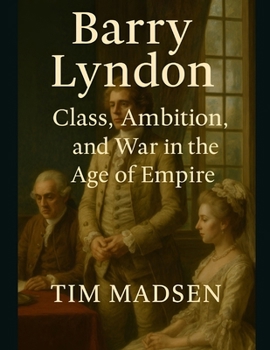Barry Lyndon: Class, Ambition, and War in the Age of Empire
Barry Lyndon: Class, Ambition, and War in the Age of Empire is a critical deep dive into one of Stanley Kubrick's most visually stunning and thematically complex films. Far more than a conventional historical drama, Barry Lyndon is an intricate meditation on social mobility, imperial power, and the illusions of personal agency in 18th-century Europe.
In this ten-part scholarly analysis, the book explores how Kubrick's film uses aesthetics, narrative structure, and historical detail to critique the aristocratic world it so meticulously reconstructs. Through discussions of painting, warfare, gender, inheritance, and national identity, the author reveals how Barry Lyndon is less a period piece than a philosophical inquiry-one that confronts the viewer with the limitations of class, the machinery of empire, and the quiet brutality of fate.
With chapters on the film's painterly style, its treatment of war and ambition, and the systemic forces that define its characters' lives, this book offers both a close reading of the film and a broader reflection on the role of historical storytelling in cinema. Drawing on sources from art history, film theory, and Enlightenment-era politics, it situates Barry Lyndon within Kubrick's oeuvre and the wider canon of cinematic and cultural history.
Written for scholars, cinephiles, and curious readers alike, Barry Lyndon: Class, Ambition, and War in the Age of Empire illuminates the enduring relevance of a misunderstood masterpiece-and invites readers to see the beauty, irony, and tragedy at its core with new clarity.





